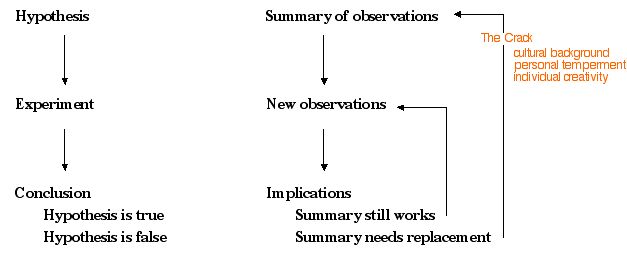Serendip is an independent site partnering with faculty at multiple colleges and universities around the world. Happy exploring!
Science as Problem-Solving
Adapted by Wil Franklin from Paul Grobstein, 2007 "Thinking about Science: Fact versus Story Telling"
Science as a Never-ending Process of Problem-solving and Question-answering
|
A loopy story telling perspective |
|
 |
|
|
Science as body of facts established by specialized fact-generating people and processes
Science as successive approximations to Truth
Science as authority about "natural world |
Science as ongoing story telling and story revision: repeated making of observations, interpreting and summarizing observations, making new observations, making new summaries ... individually and collectively, Potentially usable by and contributed to by everyone Science as a process of problem-solving/question answering and if change is the only constant then it is a never-ending
Science as skepticism, a style of inquiry that can be used for anything, one which everybody is equipped to to/can get better at/be further empowered by, and contribute to - a way of making sense of what is but even more of exploring what might yet be |
The crack
|
If science is as much about creation as discovery then the "crack"is a feature, not a bug ... and differences among people are an asset to the process rather than a problem or an indication it isn't working



Comments
Post new comment